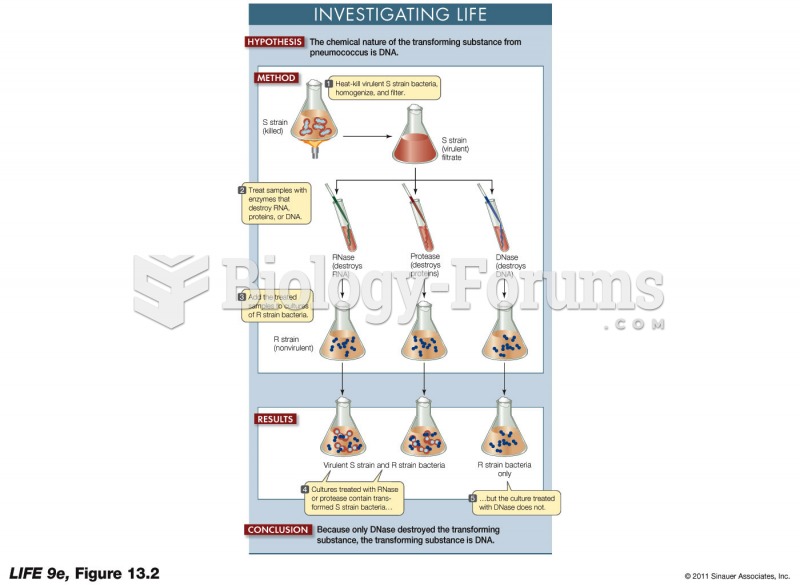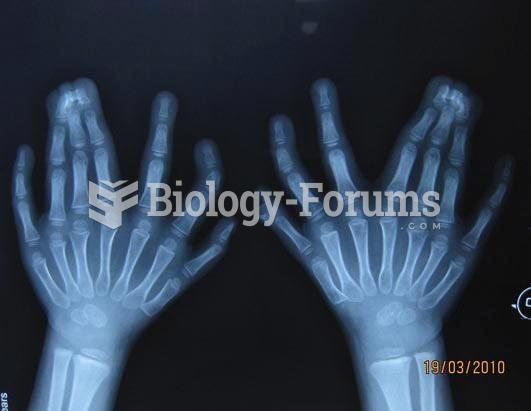|
|
|
Human neurons are so small that they require a microscope in order to be seen. However, some neurons can be up to 3 feet long, such as those that extend from the spinal cord to the toes.
The immune system needs 9.5 hours of sleep in total darkness to recharge completely.
IgA antibodies protect body surfaces exposed to outside foreign substances. IgG antibodies are found in all body fluids. IgM antibodies are the first type of antibody made in response to an infection. IgE antibody levels are often high in people with allergies. IgD antibodies are found in tissues lining the abdomen and chest.
On average, someone in the United States has a stroke about every 40 seconds. This is about 795,000 people per year.
Medication errors are three times higher among children and infants than with adults.







